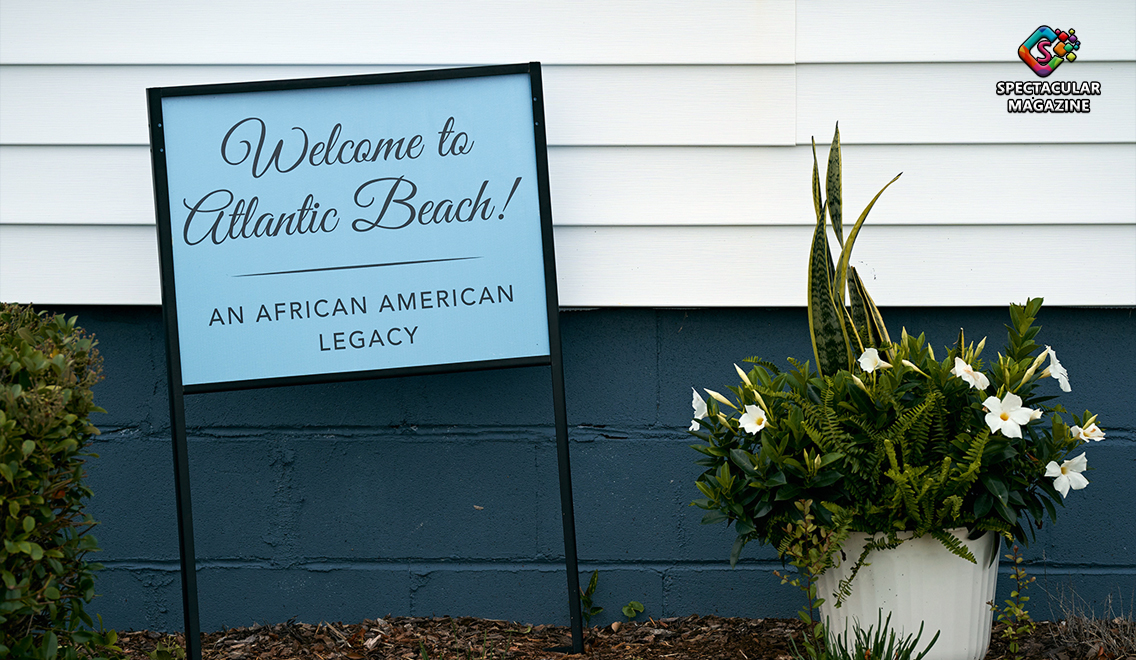Citizens Rally to Preserve Property Rights and Protect Atlantic Beach’s Cultural Legacy
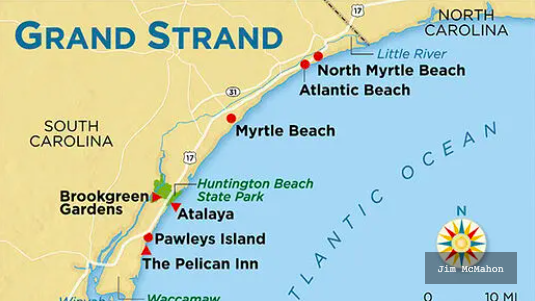
ATLANTIC BEACH, S.C. — Today (Sept. 26), in a resounding call for action, concerned Atlantic Beach citizens organized through the group STARD (Supporters for Tyson’s Ancestral Restrictions on the Deeds) have brought suit to halt aggressive plans of a New York developer aiming to disrupt the historic charm of Atlantic Beach, South Carolina. The vibrant Atlantic Beach community, steeped in African-American heritage, faces the imminent threat of a towering 21-story condo/hotel complex and an 11-story parking structure on the oceanfront and the Town’s second row.
“We refuse to stand idly by as a high-rise condo plan gains momentum, potentially devastating our entire community,” said Dr. Traci Young Cooper, a respected educator and decades-long Atlantic Beach oceanfront property owner. “We will not let Atlantic Beach suffer the same fates as Bruce’s Beach, American Beach, and other predominately African American beach communities, where indigenous people lose their power, voice, and culture. It is our responsibility to protect a cultural treasure.”
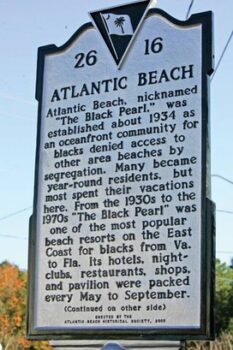
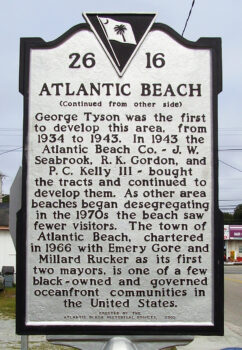
The lawsuit brought by STARD and individual landowners in Atlantic Beach explains how South Carolina law prohibits the development of this oceanfront property for non-residential use. Representing STARD and the landowners in the lawsuit is Ian Duggan of Callison Tighe & Robinson in Columbia, South Carolina.
“This community was founded nearly 100 years ago by inspired and entrepreneurial individuals who had a vision that has stood the test of time,” Duggan said. “Our lawsuit asks the Court to declare and enforce long-standing law in South Carolina—to vindicate the hard work of generations of families in continuing the promise of Atlantic Beach as a special, welcoming, and thriving community.”
The lawsuit brought by STARD and others centers on “deed restrictions” created during property transactions dating back to the community’s founding by George W. Tyson in the 1930s. Later adopted by his successor, the Atlantic Beach Company, these restrictions ensured Black families had a cherished sanctuary by the beach when no other place was accessible in a segregated South. Today, as this African-American legacy community undergoes organic growth, led largely by Black people revitalizing a community once dormant and fraught with stigma, these deed restrictions have taken on renewed importance as many seek to protect its distinct historical, cultural, and ecological qualities.
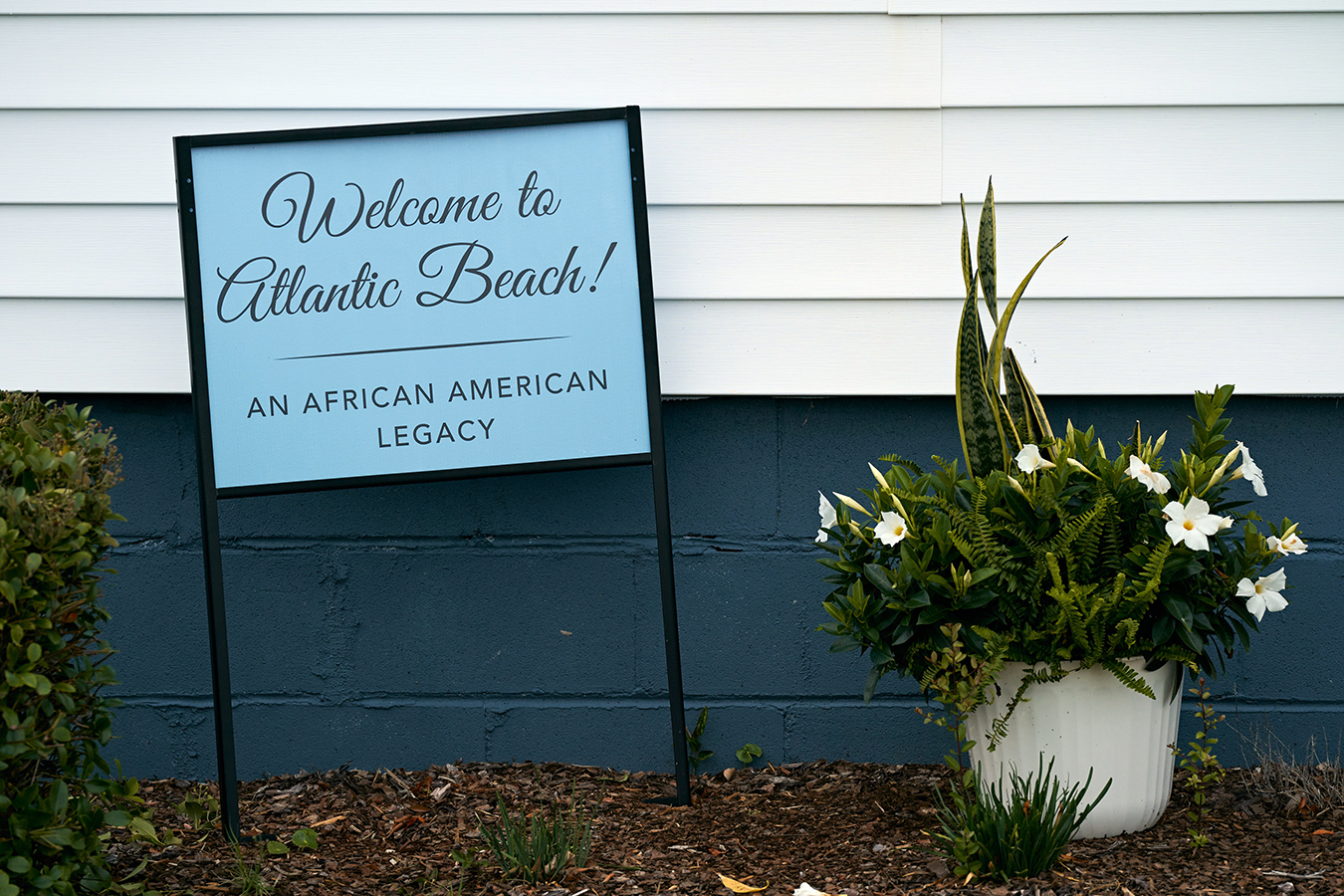 Elaine Finney lives in a home built on land purchased in the early 1950s by her father-in-law Ernest A. Finney, Jr., the first African American Circuit Court Judge in South Carolina history, who would later go on to serve as the first African American Associate Justice and later Chief Justice of the South Carolina Supreme Court.
Elaine Finney lives in a home built on land purchased in the early 1950s by her father-in-law Ernest A. Finney, Jr., the first African American Circuit Court Judge in South Carolina history, who would later go on to serve as the first African American Associate Justice and later Chief Justice of the South Carolina Supreme Court.
“This community and the deed restrictions to protect it are what our ancestors prepared for us,” said Finney, STARD spokesperson and Atlantic Beach resident. “Atlantic Beach has a rich history and legacy of resilience. The fact that it’s here today and survived is a testament to the sheer determination of its residents and property owners.”
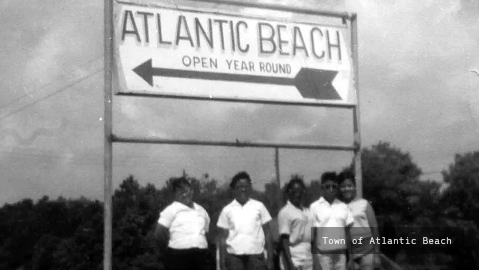
STARD represents a diverse coalition of Atlantic Beach residents and non-resident property owners directly impacted by and benefitting from the enforcement of these crucial deed restrictions. The suit also explains why the Town of Atlantic Beach’s failure to consider these deed restrictions contradicts South Carolina law.
Assessment data reveals that the market value of properties in Atlantic Beach surged to a staggering $67 million in 2022, a remarkable increase of almost 6% since 2019, without any contributions from a towering, high-rise condo/hotel complex on its oceanfront. This exponential growth is largely due to the influx of non-resident property owners building high-valued homes in this iconic community at an unprecedented rate.
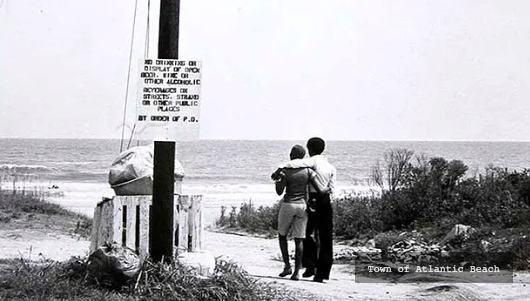
“In general, municipalities benefit more in terms of tax revenue from out-of-state property owners than resident owners,” said Lawrence Roscoe, Horry County Chief Assessor. “Out-of-state owners have less need for services and pay a higher tax ratio of 6%, rather than the 4% paid by residents.”
These landowners’ contributions to the town’s operating budget through property taxes, permit fees, and vacation rental licenses are creating a surplus that is still growing.

Councilman-elect John David recently hosted Atlantic Beach’s first-ever Economic Development Seminar to provide expertise and promote growth along the town’s commercial corridors.
“The majority of our voting and tax-paying residents do not want a high rise on the oceanfront. I stand with the majority,” David said. “The negative environmental impacts of a 20-story high rise on our oceanfront and an 11-story parking garage accommodating over 400 cars and blocking our beach would be a detriment to our town.

“Town council should protect Atlantic Beach’s natural habitats, maintain our public beach access, and consider the impact on our local infrastructure and ecosystems. We must preserve the history and culture of Atlantic Beach for future generations to enjoy. I am committed to supporting new development that protects the Town’s historic character.
“The developer must abide by the deed restrictions from the 1930s limiting development to residential construction on the oceanfront parcels. I stand with the people of Atlantic Beach.”
Atlantic Beach began in 1934 when George Tyson, a Black business owner, purchased 47 acres of beachfront property. In 1949, he purchased additional tracts on the west side of Highway 17. Tyson wanted to create an oasis for Black travelers when beaches—like many public places—were segregated by race. Atlantic Beach was surrounded by larger, white beach towns that enforced segregation by putting up ropes and fences along the beach and barricades that blocked off Ocean Boulevard. Those barricades are still in place today.
To support STARD in its valiant effort to preserve the integrity of Atlantic Beach, we invite the community to contribute via our website at https://no-beachfront-high-rises.com/. These generous donations are tax-deductible and make a difference in the fight to safeguard this iconic community.


